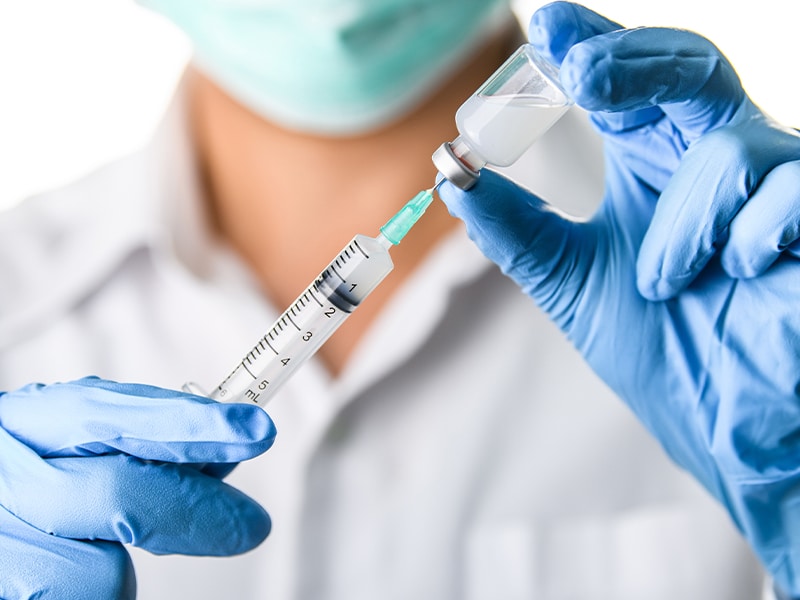Widespread vaccination offers a path out of the coronavirus pandemic. To do your part, it’s important to get vaccinated when or if you can.
Even after getting vaccinated, you should still wear a mask and practice social distancing until experts advise otherwise.
Multiple COVID-19 vaccines are in use throughout the United States as the campaign to vaccinate as many people as possible continues. Like many people, you may have questions about getting vaccinated against the coronavirus. Let’s test your knowledge of the COVID-19 vaccines:
Results
#1. The COVID-19 vaccines are safe.
Answer: A. True. Every vaccine must complete three phases of testing in clinical trials before the Food and Drug Administration (FDA) authorizes it for emergency use and, ultimately, grants formal approval. This rigorous, data-driven process helps ensure vaccines are as safe as possible. The FDA continues to monitor every vaccine after it enters public use.
#2. The COVID-19 vaccine developed fast, which means its safety was compromised.
Answer: B. False. Vaccines often take years to create. Scientists developed the first COVID-19 vaccine less than a year after the coronavirus appeared because of a coordinated, well-funded, international scientific effort that used techniques that scientists were already exploring. That includes using messenger RNA (mRNA) to create some vaccines, which is different than the standard approach of developing vaccines using a weakened form of a virus. COVID-19 mRNA vaccines teach your body to make part of the coronavirus’ spike protein so the immune system can learn to defend against it.
#3. Can I get COVID-19 from the vaccine?
Answer: B. No. The COVID-19 vaccine does not contain the live coronavirus. You may experience some side-effects like pain or swelling at the injection site, as well as headache, fatigue, and fever, which should go away in a few days.
#4. Are side effects normal?
Answer: A. Yes. Side effects are a sign that your immune system is learning to recognize and fight the coronavirus. Common side effects include pain or swelling at the injection site, as well as headache, fatigue, and fever. Call your PCP if side effects worsen or persist after a few days. Moving and using your arm after receiving the COVID-19 vaccine can ease injection-related pain, according to the CDC.
#5. Should I get vaccinated if I’ve had an allergic reaction to vaccines before?
Answer: A. Yes. The Centers for Disease Control and Prevention (CDC) recommends asking your primary care provider (PCP) whether you should get the COVID-19 vaccine if you’ve had an allergic reaction to a vaccine or injection. The CDC recommends getting vaccinated if you’ve had allergic reactions unrelated to vaccines or other injections.
#6. Will I need two shots?
Answer: It depends. The Pfizer and Moderna vaccines require two shots. However, Johnson & Johnson offers a single-shot vaccine. Speak with your provider about which vaccine you are getting and how many doses you will need.
#7. Should I get the vaccine if I’ve recovered from COVID-19?
Answer: Yes. Since it’s possible to be infected with the coronavirus more than once, it’s recommended that you should get the vaccine, even if you’ve already recovered from COVID-19. The level and duration of immunity after infection are unknown. Ask your PCP any specific questions about reinfection you have.
#8. Should my children get the COVID-19 vaccine?
Answer: A. It depends. The Pfizer-BioNTech vaccine is approved for use in people age 12 and older, and the Moderna vaccine is approved for use in people age 18 and older. Children younger than that should not receive those vaccines. Ask your child’s pediatrician about eligibility for other vaccines that may become available.
The number of available COVID-19 vaccines and who can get them continues to change. Check with your healthcare provider or local health department for the latest information about availability in your area.





